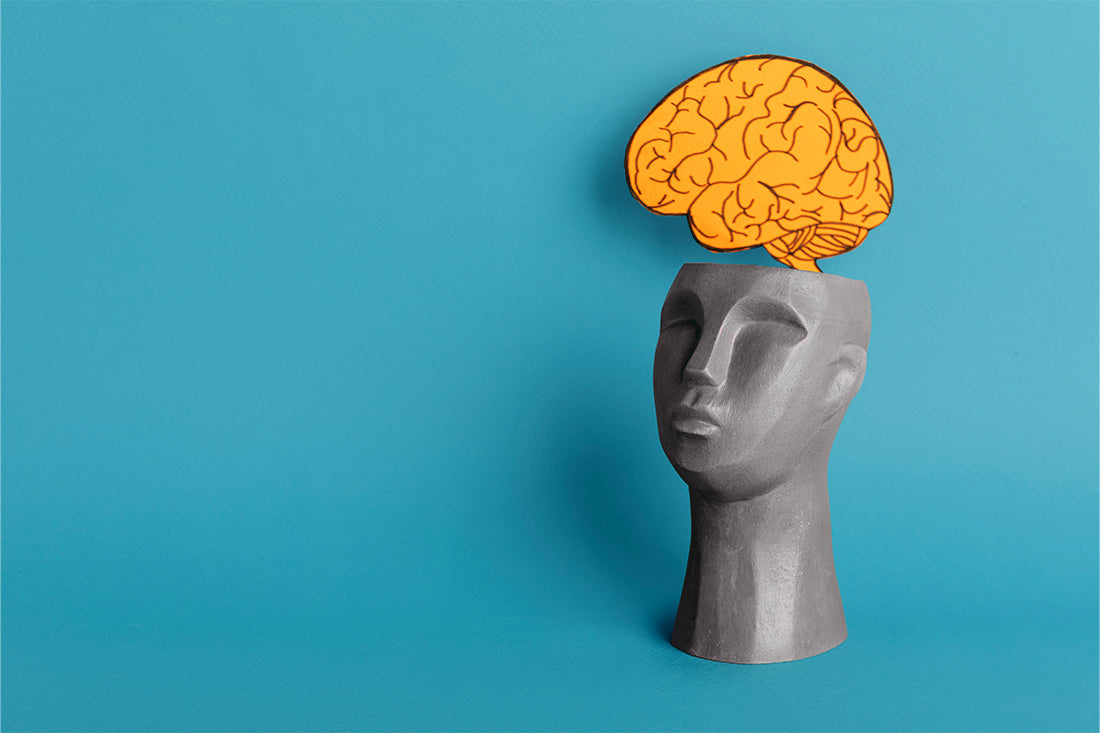When people think about Vitamin D, the first thing that usually comes to mind is bone strength. But did you know that this “sunshine vitamin” may also play a big role in brain health? Many experts now believe that getting the right amount of Vitamin D can help maintain mental clarity, memory, and overall brain function—especially as we age.
Whether you're a student trying to stay focused, a parent juggling responsibilities, or an older adult looking to support cognitive function, understanding brain health benefits of vitamin d supplementation can help you make more informed choices about your health.
How Vitamin D Works in the Brain
Vitamin D is more than just a nutrient—it acts like a hormone. Reearches shows that the vitamin may have a role in how the brain works every day.
Vitamin D3, the form usually found in supplements and produced in the skin after sun exposure, helps the brain by supporting the activity of brain cells. It also plays a part in the communication between neurons, which is key for tasks like solving problems, recalling information, and staying focused.
Brain and Cognitive Health
Vitamin D is important from the early stages of life. During pregnancy and early childhood, Vitamin D helps support brain development. Low levels during this time may affect how the brain forms connections, which may lead to cognitive issues later in life.
In adults, Vitamin D is linked with cognitive function. People with healthy Vitamin D levels tend to perform better on memory and attention tasks compared to those with low levels. While it’s not a magic solution, having enough Vitamin D may help mental health.
What Happens When You Don’t Get Enough
Vitamin D deficiency is quite common—especially among people who don’t spend much time in the sun, live in colder climates, or have darker skin tones. Over time, low levels of Vitamin D can lead to changes in brain function.
Some people may notice foggy thinking, trouble focusing, or forgetfulness. These issues may not seem serious at first, but over time, they can affect your quality of life. Studies have linked low Vitamin D levels with cognitive decline, especially in older adults.
Older adults are particularly at risk because their skin doesn't make Vitamin D as well as it used to. They may also spend more time indoors or have diets that lack this important nutrient.
Learning, Memory, and Long-Term Brain Health
The vitamin is thought to help support the health of brain cells involved in memory formation and learning. It may also help ease certain discomforts such as low mood or tiredness.
When taken regularly over the long term, Vitamin D supplement may support brain health. It may also help ease the discomforts that come with everyday mental fog.
How Much Vitamin D Do You Need?
The amount of Vitamin D you need depends on your age, lifestyle, and how much sun you get. For most adults, experts recommend around 600 to 800 IU per day, but some people may need more, especially if they have low levels to start with.
Vitamin D3 is the most common form used in supplements and is considered more effective at raising levels in the body.
Also, timing can make a difference. Taking Vitamin D earlier in the day, with a meal that contains fat, may help your body absorb it better. Some people prefer taking it in the morning to avoid sleep disturbances, as taking it late in the evening may affect rest in certain cases.
Possible Side Effects
While Vitamin D supplements are generally safe, taking too much can lead to side effects. These might include tiredness, or other discomforts. It’s important not to go overboard and to stick to the recommended dosage unless told otherwise by a healthcare provider.
Taking very high amounts for long periods can cause health issues, so more isn’t always better. Again, a simple test can tell you if your levels are within the healthy range.
Who Should Consider Supplementation?
- Older adults who may not get enough from sunlight
- People with limited sun exposure due to location, clothing, or lifestyle
- Individuals with darker skin tones, as their skin makes Vitamin D less efficiently
- People who follow plant-based diets, since most natural sources of Vitamin D come from animal products
If you fall into one of these groups, talking to a healthcare professional about Vitamin D supplementation might be helpful for maintaining your brain function and focus.
Conclusion
Your brain works hard every day—storing memories, solving problems, and helping you stay alert. Giving it the support it needs is one of the best things you can do for your overall well-being.
Vitamin D may not be the first thing that comes to mind when thinking about mental sharpness, but research suggests it plays an important role in helping maintain cognitive health and clarity—especially over time.
By making sure your Vitamin D levels are where they should be, whether through sunlight, diet, or supplements, you may help your brain stay on track for the long haul. As always, speak with a healthcare professional before starting any new supplement routine to figure out what’s right for you.






